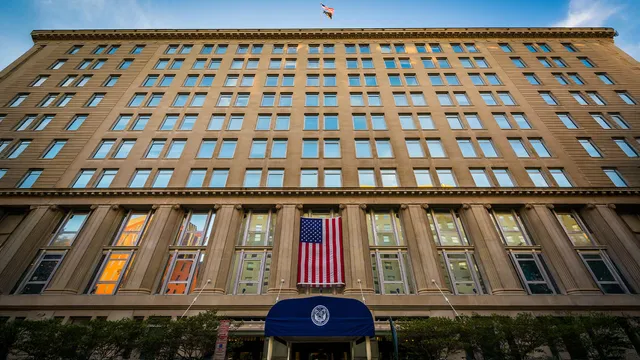
Trump administration forms task force to investigate anti-Christian bias
2025-04-23 20:24- The U.S. Department of Veterans Affairs created a task force to investigate anti-Christian bias among employees.
- This initiative aims to root out discrimination claims reported by staff in federal agencies.
- The establishment of the task force indicates a significant shift in government policy regarding religious freedoms.
Express your sentiment!
Insights
In an effort to address alleged anti-Christian bias, the U.S. Department of Veterans Affairs established a task force aimed at investigating reports of discrimination among federal employees. This initiative was part of a broader agenda under the Trump administration, reflecting a commitment to promote the rights of Christians, who represent the largest faith group in the United States. Secretary of Veterans Affairs Doug Collins sent a department-wide email urging employees to report any incidents of anti-Christian discrimination they experience or witness, including issues related to vaccine mandates and negative responses to religious expressions. This task force is part of a larger government-wide effort launched by President Donald Trump, who accused the previous Biden administration of targeting peaceful Christians while ignoring acts of violence against them. The task force, chaired by Attorney General Pam Bondi, aims to identify unlawful actions related to anti-Christian discrimination and propose changes to address them. The initiative has been met with mixed responses, with critics arguing that it prioritizes the rights of Christians over those of other religious groups and blurs the line between church and state. While some Christian organizations have welcomed this focus on safeguarding Christian rights, others have expressed concerns that it may lead to discrimination against other faiths. This newly established task force is expected to investigate specific allegations and suggest necessary policy revisions to protect the rights of Christians within federal agencies. The move to create such a task force reflects a significant shift in the government's stance on religious matters, particularly concerning the treatment of Christian individuals in federal workplaces. Additionally, there have been reports of other agencies, such as the Department of State, implementing similar measures to track allegations of anti-Christian bias. The internal effort included sending communications to employees worldwide to report any cases of discrimination. This broad undertaking showcases the Trump administration's intent to infuse its governance with a religious agenda, generating further debate about the role of religion in public life and governmental oversight.
Contexts
The issue of Christian rights in federal agencies has gained significant attention in recent years, as religious freedom continues to be a fundamental aspect of American democracy. The United States Constitution guarantees the free exercise of religion, and this right extends to employees of federal agencies. Christian employees and applicants may encounter challenges that can threaten their ability to practice their faith within the workplace, making it crucial for federal agencies to ensure that their policies and practices are in compliance with the law while respecting the religious identity of their workforce. These challenges can range from perceived discrimination in hiring processes to the inability to express religious beliefs openly without fear of retribution or professional consequences. Federal agencies are bound by a set of guidelines designed to protect the rights of religious employees, including the Religious Freedom Restoration Act (RFRA), which mandates that federal law must not substantially burden an individual’s exercise of religion unless there is a compelling governmental interest. This framework obligates agencies to provide reasonable accommodations for employees who request them based on their religious beliefs. Policies should be continuously evaluated to ensure they align with the principles of non-discrimination and freedom of expression, securing an environment where Christian employees can feel safe and respected while practicing their faith in accordance with their personal values. In addition to policies on accommodation, it is essential for federal agencies to conduct proper training on how to handle religious expression within the workplace. Training initiatives should educate employees and management on religious rights and promote inclusivity, thereby fostering a workplace culture that values diversity of thought and belief. The recent focus on creating such awareness aims to ensure that instances of discrimination—whether overt or subtle—are addressed proactively and that employees feel empowered to speak out against injustices they may face based on their religious identity. Furthermore, transparency and communication are key in building trust within agency environments, as employees must know that their concerns will be heard and addressed appropriately. As the discourse surrounding Christian rights in federal agencies continues to evolve, it is imperative for lawmakers, agency officials, and legal advocates to remain vigilant in their efforts to protect the rights of all religious individuals. Ongoing discussions about the intersection of faith and employment should prioritize respect for individual beliefs while considering the implications of policies on all employees, regardless of their religious affiliation. In conclusion, ensuring the rights of Christians and other religious employees within federal agencies is not only about compliance with existing laws but also about fostering a work environment that upholds the principles of freedom, respect, and mutual understanding.